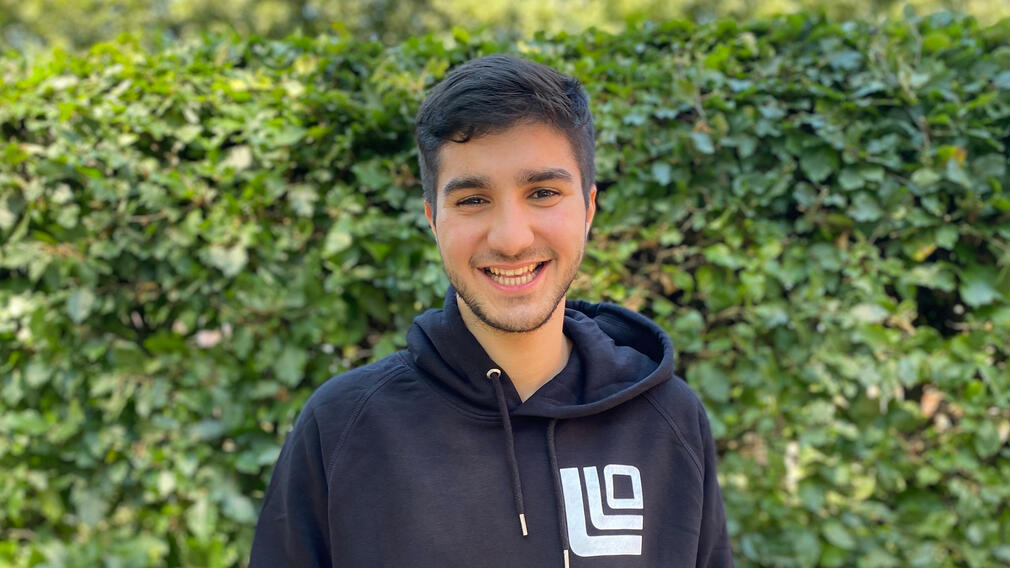Learning to Teach Digitally – Student Teaching during the Pandemic
Learning to Teach Digitally – Student Teaching during the Pandemic
26.02.21
In March 2020, the Corona School was created within 48 hours in the #WirVsVirus Hackathon of the German government. The student initiative addresses the problem of school closures across Germany with an idea that is as simple as it is progressive: students* receive free and digital 1-to-1 learning support from dedicated students. In May 2020, the Corona School team at the SemesterHack 1.0 of the HFD developed the concept for the project „Learning to Teach Digitally – Practical Experiences for Student Teachers“ in record time. The idea convinced the jury and so the project received funding from the BMBF as one of the winners of SemesterHack 1.0.
We are also convinced and present the project, as well as Stefan, a student in primary education teaching, who is currently doing the digital internship at the Corona School.
Disclaimer: This article has been automatically translated using DeepL Translate. Please excuse any mistakes.
Learning to teach digitally explained
In order to help not only students but also pupils, the Corona School has designed a concept for compulsory internships as student teachers that can be implemented purely digitally and thus enables student teachers to complete compulsory internships despite the restrictions imposed by the Corona pandemic.
The Corona pandemic poses major challenges for many actors in the education and school context. Although digitization is experiencing an enormous upswing in the school sector, it is clear that, in addition to the much-discussed technical infrastructure, the training and continuing education of (prospective) teachers is also necessary. This is where the Digital Lehren lernen model comes in.
As part of the digital internship in the first phase of teacher training, student teachers are to learn how to impart knowledge digitally and creatively. New formats and didactic methods for teaching are tried out and reflected upon. The Corona School’s digital internship is suitable for student teachers at all stages of their studies. Depending on the level of experience of the students, they are supported individually and to the extent they need it by mentors of the Corona School.
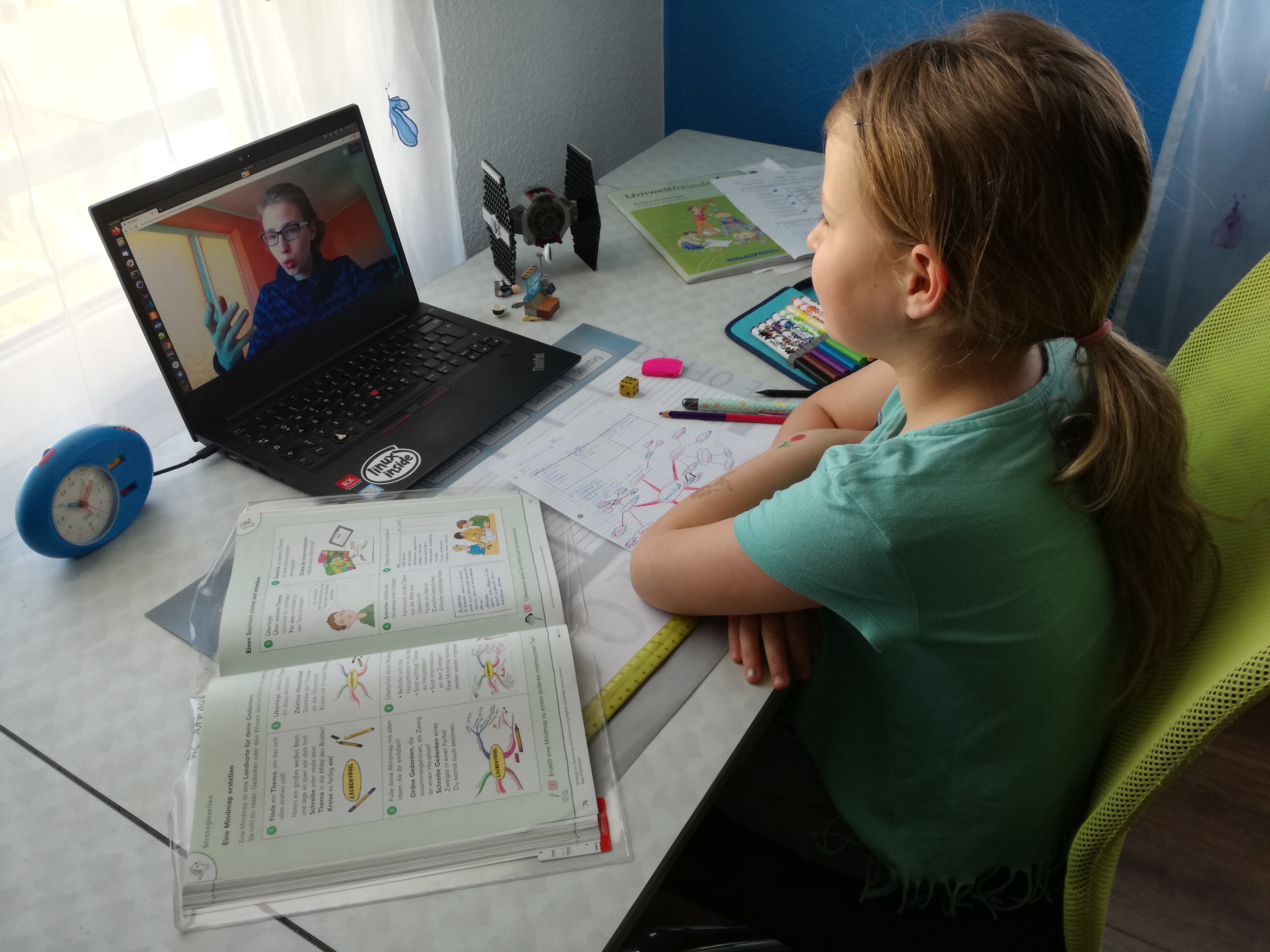
How the digital internship works
Student teachers interested in a digital internship apply through the Corona School website. The internship consists of four topics, which in turn include individual components. Each university or college determines which components are necessary and acceptable for credit. We offer the following components to interns:
Topic 1: teaching
In the thematic area of teaching, the interns accompany individual students in a 1-to-1 learning support. For example, practice exercises can be repeated, lesson content can be explained, or homework can be individually debriefed. In addition, the interns have the opportunity to offer group teaching sessions and thus support several students at the same time. Corona School provides interns with guides and videos to assist them in planning their lessons.![Exchange of experience, feedback and professional support via mentors. Image: [https://www.pexels.com/de-de/foto/hande-menschen-frau-laptop-4226122/ Anna Shvets] Student in front of laptop in a video call](/sites/default/files/images/blog/Mentoring.jpg)
Topic 2: Reflection
Mentoring is part of the topic area of reflection. After an introductory meeting, the interns are assigned an individual mentor who supports them in the preparation and follow-up of the lessons, participates in the group teaching sessions and is available for pedagogical questions.
In addition, interns complete an update sheet every two weeks. In it, they document which components they have completed in the past two weeks and plan the next steps. The latter enables interns to reflect on previous experiences and structure their internship.
The Corona School is looking for mentors with professional experience in the teaching field to accompany the interns in the digital learning to teach project! Interested? Click here for more information.
Topic 3: Cooperation and exchange
Peer-to-peer calls for interns are offered at regular intervals. There, interns have the opportunity to talk about their experiences with other interns. In the peer-to-peer calls, tandems can also be formed to sit in on each other’s group courses.
Topic 4: continuing education
The interns receive a scholarship for the Fobizz platform as part of their digital internship. This allows them to take part in online training courses on media literacy free of charge and thus acquire digital competencies and didactic skills.
Why learning to teach digitally will continue to be relevant in the future
The Digital Lehren lernen project offers the opportunity to explore digital teaching and learning. Currently, a pilot phase of the project with more than 100 interns is running, supported by the BMBF and scientifically accompanied by the Goethe University Frankfurt. The digital internship can already be credited as a mandatory internship at 11 universities or colleges. The goal is to further develop the project and to enable the digital internship to be credited at other universities in Germany.
The digital internship is not only a compensatory solution for compulsory internships in times of the pandemic, but is also highly relevant for teacher training in the long term. It enables prospective teachers to acquire digital competencies by exploring digital, methodological, and didactic principles in lesson preparation and implementation. At the same time, interns in the Digital Teaching project support students regardless of their social, cultural, and financial backgrounds, thereby promoting more equal opportunities in the education system.
Experiences from the digital internship – an interview
Stefan Schekelinski is studying to become a teacher for special needs education at the University of Paderborn and completed his professional field internship through the Digital Learning to Teach project – „A win-win situation,“ says Stefan. We asked him a few questions:
HFD: What were your worries before starting the digital internship?
Stefan: My worries before starting the digital internship were expressed by the fact that until then I couldn’t imagine children from the primary sector participating attentively in digital lessons. In addition, I was unsure whether my technology know-how was sufficient for digital learning support. However, my biggest fear before starting the digital internship was that I didn’t think it was possible to establish a personal and trusting relationship, as well as atmosphere, via a digital medium.
What surprised you in a positive way?!["I assume that in the future, regular classroom instruction in face-to-face form will dominate again," says Stefan. But he also sees potential in digital formats to enrich analog instruction. Image: [https://www.pexels.com/de-de/foto/person-frau-schreibtisch-notizbuch-4143792/ Julia M. Cameron] Girl from bird's eye view in front of computer in a video conversation with young woman](/sites/default/files/images/blog/pexels-julia-m-cameron-4143792.jpg)
I was positively surprised by the fact that my fears and worries were not fulfilled. At Corona School, I was able to gain experience in 1-to-1 learning support and also in group classes. In the 1-to-1 learning support I could observe that the attention is generally very good, but at the same time this is also due to the fact that full attention is given to one child. This would rarely be the case in a regular classroom setting. In group classes, on the other hand, it is more difficult to look at all the children, since only a certain number of children can be seen on the desktop.
What impressed me most, however, was that digital classes open up a whole new range of learning opportunities. For example, there are many ways to make worksheets or videos interactive and thus incorporate them into the lessons. I particularly liked the fact that you can offer supplementary and targeted support measures for practicing difficult lesson content or content in which the child had difficulties. For example, the „Padlet“ platform can be used to create a digital pinboard to summarize texts or videos as a repetition of important content and then provide exercises for consolidation. The platform offers a wide range of possibilities.
I was also excited about the many digital training opportunities. My scholarship for „Fobizz“, which gives access to online training courses and enables teachers, trainers and media educators to share their knowledge on the use of digital media, enabled me to acquire new skills. For this reason, my fears about a lack of technical know-how quickly subsided.
Which of the skills you learned during your internship will help you in the future „after Corona“?
The experience and skills I gained during the internship will help me a lot in the future. I assume that in the future, regular classroom instruction will once again dominate and cannot be replaced by digital instruction. However, I also believe that digital learning support offers many new opportunities and potentials. For this reason, I believe that these formats can support and complement regular classroom instruction in a positive way. Thus, digital learning spaces will remain present in the future and the experiences gained can contribute to a better quality of school.
Teacher training 2025: The digital internship as part of the module plan. Utopia or dystopia?
In my opinion, the digital internship as part of the module plan is both utopia and dystopia. In the previous section, I already clarified that digital learning worlds offer many potentials and opportunities that we should continue to use in the future. For example, I can well imagine that alternating instruction between classroom formats in school and digital learning units could be a model of instruction in the future. This could increase the quality of school and teaching. Examples of this would be the creation of individual digital support plans or teacher training without cancelled lessons. In addition, teaching would become more comprehensible. Parents or other teachers could, for example, participate in lessons by observing lessons and thus make them more fruitful.
Thank you Stefan!


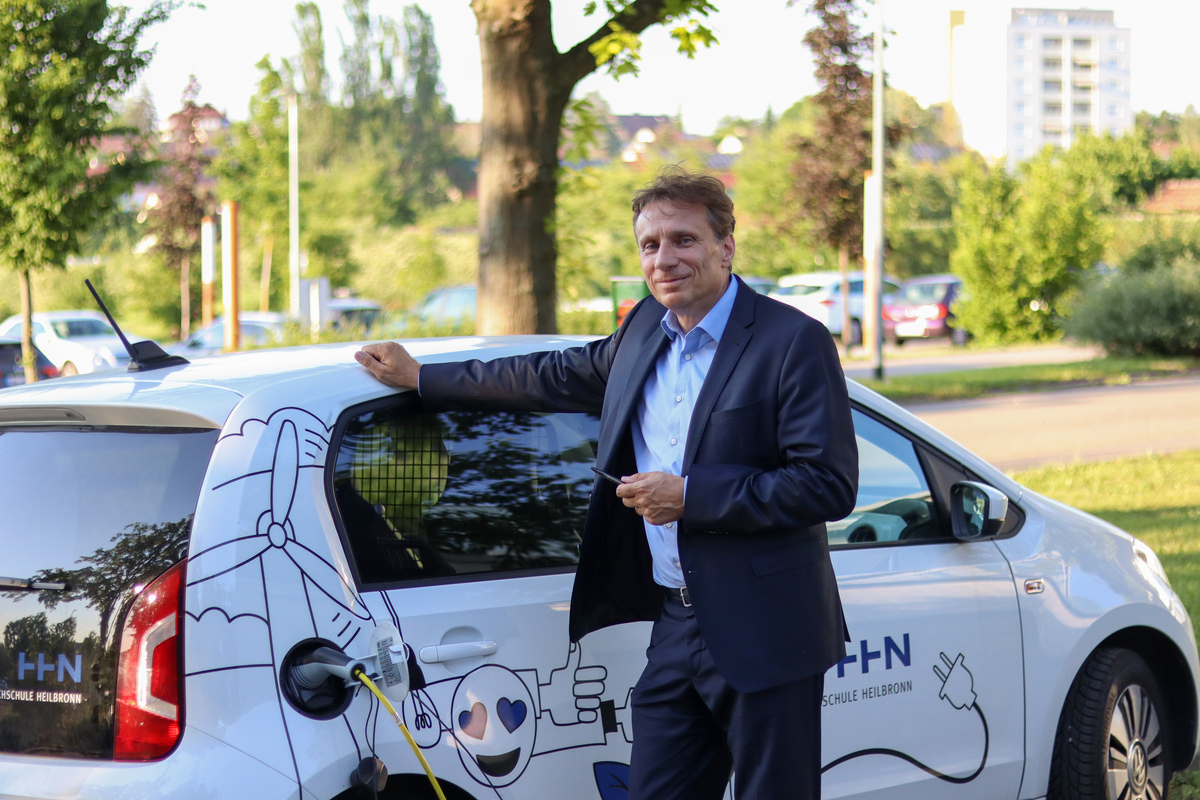 Prof. Dr.-Ing. Andreas Daberkow
Prof. Dr.-Ing. Andreas Daberkow 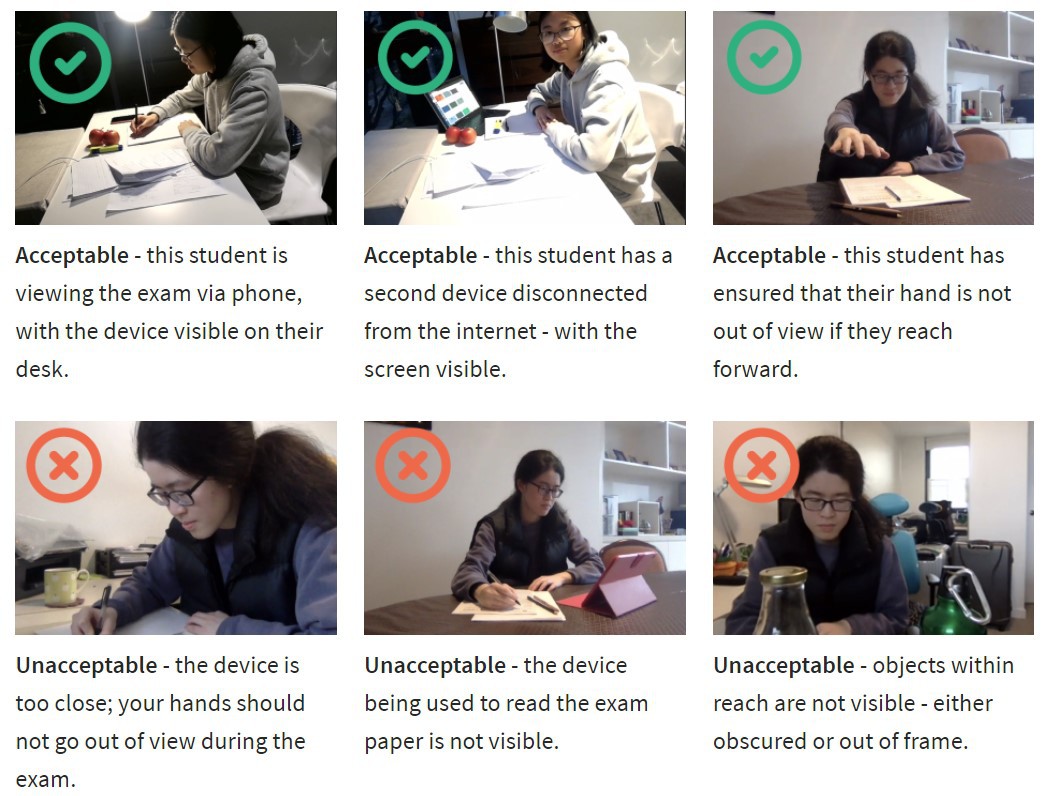
 Adrian Bidlingmaier
Adrian Bidlingmaier 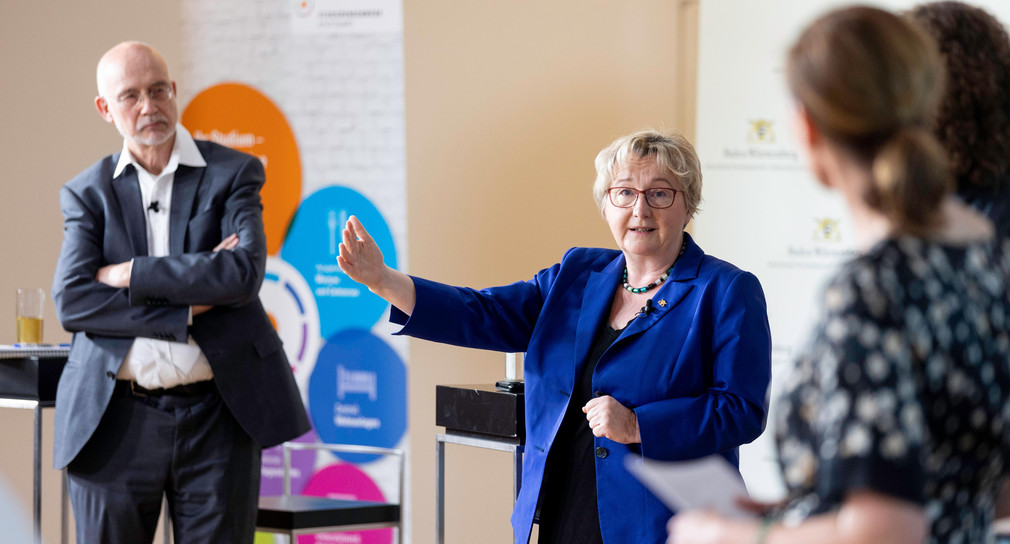
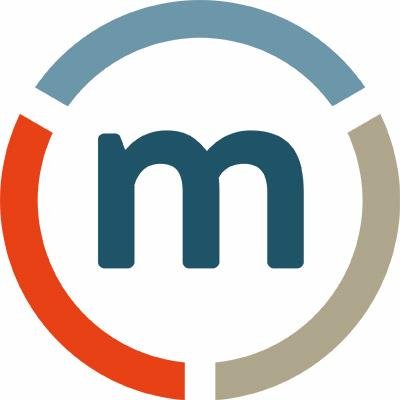 MERTON Magazin
MERTON Magazin 